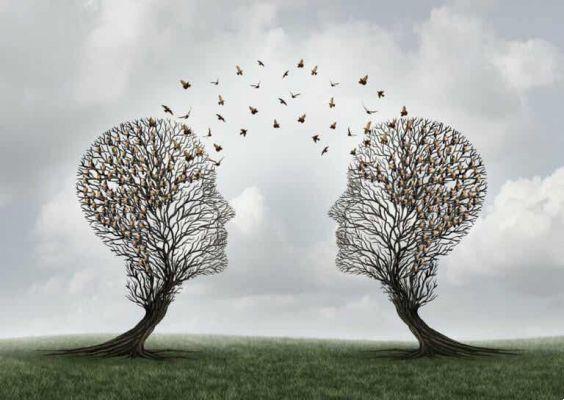Communication is one of the most important aspects to take care of in any relationship. We present the best strategies.

Last update: 12 March, 2022
How many times do we communicate something and others interpret it in a very different way than we expected? How many personal conflicts are generated by a misunderstanding? We depend on each other in countless ways. It is therefore essential to learn how to communicate effectively.
If we want to thrive or cultivate an intense social life that satisfies us on a personal level, we must improve our communication skills. To this end, it is worth considering some strategies that will help us in this regard.
"To learn how to communicate effectively, we need to realize that we are all different in the way we perceive the world and use that knowledge as a guide to communicate with others."
-Tony Robbins-
Strategy per comunicare in modo efficace
1. Communicate concisely, don't be repetitive
When we repeat a message giving too many explanations, our interlocutor may feel offended, as if we think we can't understand it.
It is always possible to raise an extremely profound and significant topic, but in a simple way, without many clarifications and repetitions.
If we are very repetitive, the interlocutor's attention will decrease and he will stop listening to us, even when we transmit relevant information. That is why it is important to speak clearly, concisely and not redundantly.
2. Try to be specific and get to the point
For our communication to be effective, we need to express ourselves specifically and clearly. Let's put aside ambiguities and generalizations and say exactly what we want. If we put it bluntly, the effect will be much better.
Going around the issue can be confusing. When this happens, and we ask, "Did you hear what I told you?", The answer usually is, "You've said so many things to me that I don't know what you mean."
At this point, we typically get angry because we don't feel heard, but we need to know that probably our way of communicating is not the best.
3. Learn to communicate efficiently without references to the past
It is never good to raise past issues and dust off old grudges, except for the pain and problems.
It is true that the past can be of great help and show the way forward, as long as we are willing to look at it positively, that is, to learn from it. Remembering what happened several times, without the intention of grasping the implicit "lesson", does not offer good results.
4. Find the right time and space to communicate
It is obvious that there are problems that cannot be addressed everywhere. When we have to communicate something difficult to another person, it is best to do it in private.
Conversely, if we are to congratulate someone, it is advisable to do it in public, where others can also listen.
It is not necessary to flatter excessively, but if we do it naturally, the person will certainly feel greatly appreciated.
5. Tackle the problems separately, one after the other
It is not recommended to tackle multiple topics together that have nothing to do with each other. Sometimes we want to take advantage of the moment and come up with a long list of outstanding issues.
Most likely, however, this will only cause anger and discomfort in the interlocutor. It is therefore advisable to avoid it as much as possible.
6. Monitor silent communication
What is said verbally is not everything. The gestures, the tone and volume of the voice, as well as the facial expressions must be in accordance with what has been said.
Otherwise, the message is lost. What we say is just as important as the way where we say it.
"The most important thing to communicate effectively is to listen to what is not being said."
-Peter Drucker-
How says Elisabeth Corrales (2011), we must be careful of the non-verbal message as “many times this message is stronger than the verbal one, because it can also betray a lie”.
On the other hand, McEntee (1996) he assures us that “through gestures, facial expressions and body tension or relaxation, we are communicated some information about the relationship between two characters”.
7. Don't speak in absolute terms to learn how to communicate better
When we say expressions like "always do the same thing," we apply labels that are not true. If we express ourselves this way, we are probably being unfair and dishonest.
If the goal is to resolve a conflict, let's try to use more relative terms such as “sometimes” or “often”, which make our interlocutor feel better.
When we need to make constructive criticism, let's refer to the behavior and not the person. Most of the time, what really upsets us is someone's specific behavior and not their person. It is essential to understand the difference and also to make it clear.
Conclusions
Learn to communicating effectively is an art and it pays to strive to excel. This will ensure great success in our relationships, allowing misunderstandings and conflicts to stay away from us as much as possible.


























